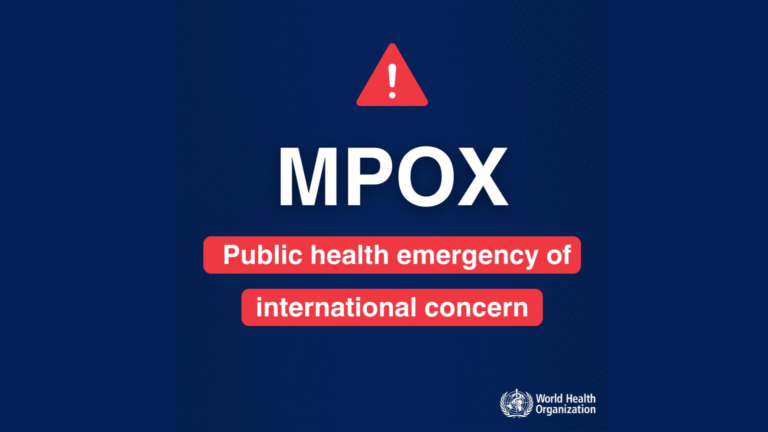The World Health Organization (WHO) recently declared a global health emergency amid rising cases of mpox. The current outbreak, which began in the Democratic Republic of Congo (DCR), is caused by a deadlier form of the virus than the one that spread around the world in 2022. Cases have been found in at least thirteen African nations. The first cases outside of Africa were recently reported in Sweden in Thailand in men who had traveled to the region.
Types of Mpox
Mpox is related to the smallpox virus. Researchers have identified two main types of the virus called clade I and clade II. The global outbreak in 2022 was caused by a clade II type that usually causes mild infections and has a fatality rate of less than 1%. Most of the cases in that outbreak were among men who have sex with men.
The current outbreak in Africa is caused by clade I mpox which is more virulent, causes more severe disease and has a case fatality rate of about 10%. Clade I mpox is endemic to the DRC, but until recently most cases were transmitted from animals to humans through butchery and food. This newest outbreak appears to be caused by a new version of the virus that spreads from person to person. Scientists refer to this version as clade Ib.
In some parts of Africa, clade Ib virus appears to be transmitted between members of a household or through patient care when appropriate protective equipment was not available. In these areas a high proportion of cases have been reported in children under 15 years of age. In other areas, sexual transmission is more common. This is the first time clade I mpox has been sexually transmitted and most cases are transmitted through heterosexual sex. Many cases have been seen in sex workers, truck drivers and other transient workers.
WHO sounds the alarm on Mpox
This year, there have been over 17,000 infections and more than 500 deaths from mpox in central and eastern Africa, most of them in DCR. The WHO is sounding the alarm in the hope of creating a coordinated international response that could prevent this deadliest strain from spreading globally. THE head of the Emergency Committee on International Health Regulation let me put it this way:
“The current outbreak of mpox in parts of Africa, along with the spread of a new sexually transmitted strain of monkeypox virus, is an emergency, not just for Africa, but for the entire globe. Mpox, originating in Africa, was neglected there and later caused a global outbreak in 2022. It is time to act decisively to prevent history from repeating itself.”
Mpox in the United States
The Centers for Disease Control and Prevention (CDC) says there is no immediate threat of clade I mpox to the United States because movement in the area is limited, but continues to monitor the situation closely. Anyone traveling to areas with outbreaks should avoid contact with people who are sick (especially people who have rashes or lesions) and should stay away from wild animals and “bush meat”.
The CDC has told clinicians to be on the lookout for mpox symptoms. In the last outbreak, mpox blisters appeared on the genitals and were often misdiagnosed as herpes or syphilis. Clinicians should ask patients presenting with possible mpox symptoms if they or any of their partners have traveled to the DRC or other areas in east and central Africa.
It is also important to remember that there are still cases of clade II mpox in the United States, although the numbers are much lower than they were in 2022. During the peak of this epidemic, 11,000 cases were diagnosed each month. So far in 2024, only 1,122 cases have been reported.
Mpox vaccination
Most of the cases continue to be among people at higher risk for mpox who were not vaccinated. The CDC recommends the JYNNEOS vaccine for:
- Gay, bisexual, or other same-sex men in love who have sex with men or are transgender, gender non-binary, or gender diverse AND in the past 6 months have had or expect to have
- One or more sexually transmitted infections
- More than one sexual partner or anonymous sexual or intimate contacts
- Sex in a sex shop
- Sex in conjunction with a large public event in a geographic area where mpox transmission occurs
In addition to recommending that everyone who meets these criteria get vaccinated, the CDC has published Guidelines for safe sex specific to mpox which remind people that the virus is spread through close face-to-face contact as well as contact with blisters and any cloth that has touched the blisters.
Behavioral changes among gay, bisexual, transgender and other MSM—such as reducing anonymous sex, less skin-to-skin contact, and washing all bedclothes at once—were credited with keeping the virus in check during the Great Depression. epidemic.
While the risk of a new mpox outbreak remains low in the US, recent experiences with pandemics—both COVID and mpox—should remind us that both public health officials and individuals must remain informed and prepared
small
